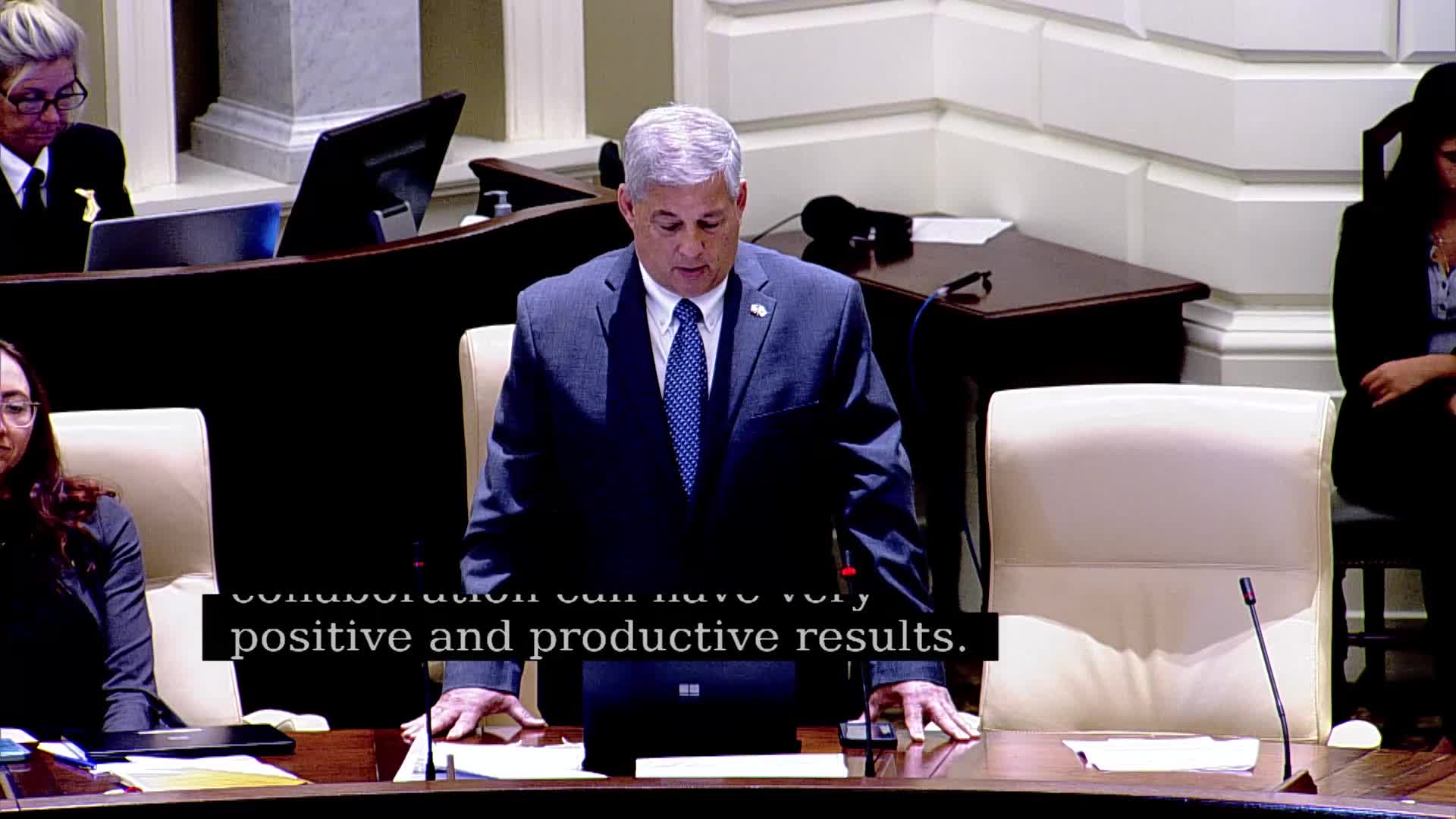Senate Approves Public Input Requirement for Education Policy Development
July 31, 2025 | 2025 Legislature MA, Massachusetts
This article was created by AI summarizing key points discussed. AI makes mistakes, so for full details and context, please refer to the video of the full meeting. Please report any errors so we can fix them. Report an error »

In the heart of the Massachusetts State Senate, a pivotal discussion unfolded on July 31, 2025, as lawmakers gathered to deliberate on educational reforms aimed at enhancing student learning and mental health. The atmosphere was charged with a sense of purpose, as senators recognized the profound impact of their decisions on the future of education in the state.
At the forefront of the session was an amendment proposed to ensure that the Department of Elementary and Secondary Education engages the public in its policymaking process. This amendment, championed by a senator who emphasized the importance of transparency and community involvement, mandates at least one public hearing for the development of educational rules. The senator articulated a vision where policy is not crafted in isolation by bureaucrats but is shaped by the voices of those it affects most—students, parents, and educators.
The amendment also calls for local school districts and committees to solicit public input when formulating their policies. This dual approach aims to foster a collaborative environment where community discourse informs educational strategies, ensuring that they are relevant and effective. The senator expressed gratitude to the chair of the education committee for their collaborative efforts, highlighting the legislative process as a testament to democracy in action.
As the session progressed, several amendments were proposed, including one concerning exemptions for monitoring diabetes in schools and another offering school districts an opt-out option. However, these amendments faced opposition and were ultimately not adopted, reflecting the complexities and differing opinions within the chamber.
The session culminated in the adoption of the Senate Ways and Means Amendment, paving the way for the underlying bill to be ordered for a third reading. This bill, aimed at promoting student learning and mental health, was read for the final time, setting the stage for a crucial vote. Senators cast their votes, with many expressing their support for the bill, underscoring a collective commitment to improving educational outcomes in Massachusetts.
As the session drew to a close, the discussions highlighted a significant moment in the legislative process—one where the voices of the community are increasingly recognized as vital in shaping policies that affect the educational landscape. The outcome of this session not only reflects the priorities of the current legislature but also sets a precedent for future engagements between lawmakers and the public, ensuring that education remains a collaborative effort.
At the forefront of the session was an amendment proposed to ensure that the Department of Elementary and Secondary Education engages the public in its policymaking process. This amendment, championed by a senator who emphasized the importance of transparency and community involvement, mandates at least one public hearing for the development of educational rules. The senator articulated a vision where policy is not crafted in isolation by bureaucrats but is shaped by the voices of those it affects most—students, parents, and educators.
The amendment also calls for local school districts and committees to solicit public input when formulating their policies. This dual approach aims to foster a collaborative environment where community discourse informs educational strategies, ensuring that they are relevant and effective. The senator expressed gratitude to the chair of the education committee for their collaborative efforts, highlighting the legislative process as a testament to democracy in action.
As the session progressed, several amendments were proposed, including one concerning exemptions for monitoring diabetes in schools and another offering school districts an opt-out option. However, these amendments faced opposition and were ultimately not adopted, reflecting the complexities and differing opinions within the chamber.
The session culminated in the adoption of the Senate Ways and Means Amendment, paving the way for the underlying bill to be ordered for a third reading. This bill, aimed at promoting student learning and mental health, was read for the final time, setting the stage for a crucial vote. Senators cast their votes, with many expressing their support for the bill, underscoring a collective commitment to improving educational outcomes in Massachusetts.
As the session drew to a close, the discussions highlighted a significant moment in the legislative process—one where the voices of the community are increasingly recognized as vital in shaping policies that affect the educational landscape. The outcome of this session not only reflects the priorities of the current legislature but also sets a precedent for future engagements between lawmakers and the public, ensuring that education remains a collaborative effort.
View full meeting
This article is based on a recent meeting—watch the full video and explore the complete transcript for deeper insights into the discussion.
View full meeting
